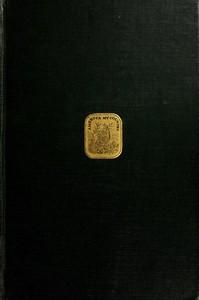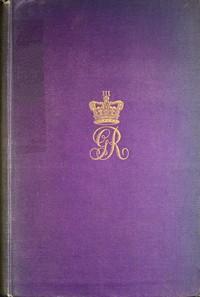|
|
Read this ebook for free! No credit card needed, absolutely nothing to pay.Words: 84139 in 18 pages
This is an ebook sharing website. You can read the uploaded ebooks for free here. No credit cards needed, nothing to pay. If you want to own a digital copy of the ebook, or want to read offline with your favorite ebook-reader, then you can choose to buy and download the ebook.

: The Royal Mail: Its Curiosities and Romance by Hyde James Wilson - Postal service Great Britain@FreeBooksWed 07 Jun, 2023 being extracted, he pursued his journey for London, leaving the chariot and ladies in the situation where they were first seen." "The Devonport mail arrived at half-past eleven o'clock. The guard, who had travelled with it from Ilminster, a distance of 140 miles, states that journey to have been a most trying one to both men and cattle. The storm commenced when they reached Wincanton, and never afterwards ceased. The wind blew fresh, and the snow and sleet in crossing Salisbury Plain were driving into their faces so as almost to blind them. Between Andover and Whitchurch the mail was stuck fast in a snowdrift, and the horses, in attempting to get out, were nearly buried. The coachman got down, and almost disappeared in the drift upon which he alighted. Fortunately, at this juncture, a waggon with four horses came up, and by unyoking these from the waggon and attaching them to the mail, it was got out of the hollow in which it was sunk." These are some of the reports, written at the time, of the disorganisation of the mail-service in consequence of the snowstorm. Some slight idea of the magnitude of the drifts may be obtained from one or two additional particulars. The mail proceeding from Exeter for London was five times buried in the snow, and had to be dug out. A mail-coach got off the road seven miles from Louth, and went over into a gravel-pit, one of the horses being killed and the guard severely bruised. So deeply was another coach buried on this line of road that it took 300 men, principally sappers and miners, working several hours, to make a passage to the coach and rescue the mails and passengers. Near Chatham the snow lay to a depth of 30 or 40 feet, and the military were turned out to the number of 600 to clear the roads. On the line of road from Chatham to Dover, a sum of ?700 was spent by the road-trustees in opening up the road for the resumption of traffic, an official report stating that for 26 miles the road "was blocked up by an impenetrable mass of snow varying from 3 feet to 18 feet in depth." Between Leicester and Northampton cuttings were made, just wide enough for a coach to pass, where the snow was heaped up to a height of 30, 40, and in some places 50 feet. About a stage from Coventry, near a place called Dunchurch, seventeen coaches were reported to be laid up in the snow; and in other parts of the country a similar wholesale derangement or stoppage of road-traffic took place. On the 9th January 1837, an official report set forth that "the mail-coach road between Louth and Sheffield had on the 6th inst. been closed twelve days in consequence of the snow, and it is stated that it will be a week before the mail can run." An attempt was made to get the mail forward from Lewes to London by post-chaise and four horses; but after proceeding about a mile from the town, the chaise returned, the driver reporting that it was impossible to proceed, as the main road was quite blocked up with snow to a depth of 10 or 12 feet. These were the good old times; and no doubt to us they have a romance, though to the people who lived in them they had a very practical aspect. The general instructions to mail-guards in cases of breakdown were as follows:-- "When the coach is so broke down that it cannot proceed as it is on its way to London, if you have not above two passengers, and you can procure a post-chaise without loss of time, get them and the mail forward in that way, with the horses that used to draw the mail-coach, that they may be in their places ; and if you have lost any time, you must endeavour to fetch it up, which may be easily done, as the chaise is lighter than the coach. "If you cannot get a post-chaise, take off one of the coach-horses, and ride with your bags to the next stage; there take another horse,--and so on till you come to the end of your ground, when you must deliver the bags to the next guard, who must proceed in the same manner. If your mail is so large that one horse cannot carry it, you may take two; tie the mail on one horse and ride the other. The person who horses the mail must order his horsekeeper at every stage to furnish you with horses in case of accidents. Change your horses at every post-town, and do all your office-duty the same as if the coach travelled. "If in travelling from London an accident happens, use all possible expedition in repairing the coach to proceed; and if it cannot be repaired in an hour or two, take the mail forward by horse or chaise--if the latter, the passengers will go with you." In pursuance of these instructions, many instances of devotion to duty were given by the mail-guards, in labouring to get the mails forward in the midst of the snowstorm of 1836. Free books android app tbrJar TBR JAR Read Free books online gutenberg More posts by @FreeBooks
: The Hill of Venus by Gallizier Nathan Garrett Edmund H Edmund Henry Illustrator Verburg P Illustrator - Italy History 13th century Fiction@FreeBooksWed 07 Jun, 2023

: A Civic Biology Presented in Problems by Hunter George W George William - Biology; Sanitation@FreeBooksWed 07 Jun, 2023
|
Terms of Use Stock Market News! © gutenberg.org.in2025 All Rights reserved.






